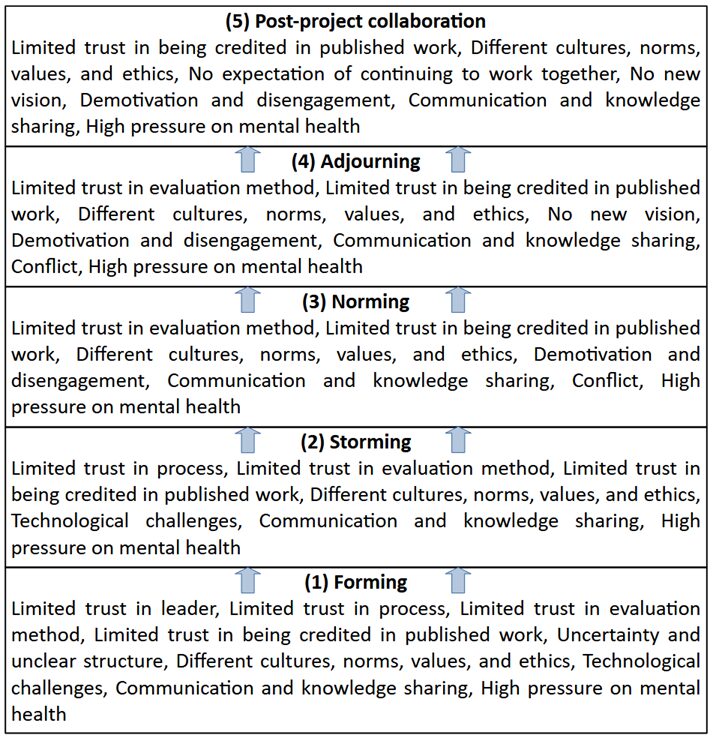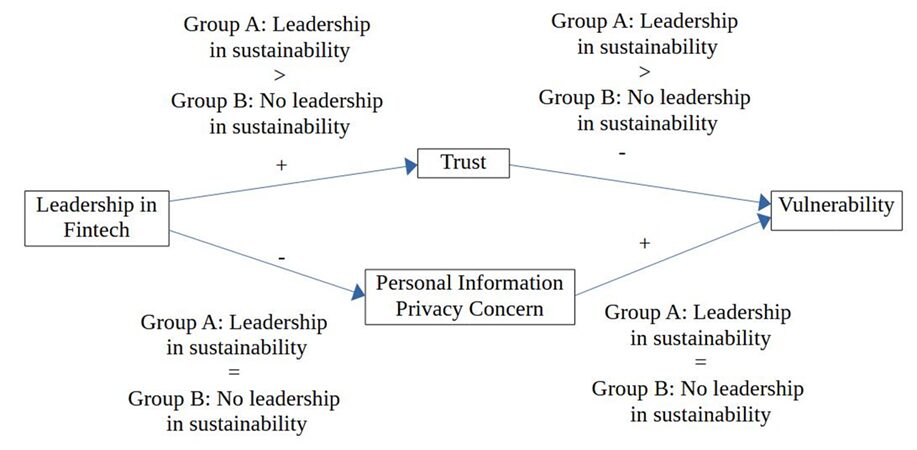There are many benefits for researchers that take part in a project but there are also several challenges that can create a cumulative, negative, effect on their mental health. This research identifies the challenges researchers face in projects, so that the leader of the project can reduce them as far as possible.
Existing research focuses on four stages of a project: Forming, Storming, Norming and Adjourning. This research adds a fifth stage, Post-Project Collaboration, as this stage is implicitly or explicitly a part of most research projects. For example, a post-doctoral researcher expects to be credited for their work even if it is published after the end of the project. The specific challenges for each of the five stages are identified. This enables the leader to focus on a manageable number of challenges at each stage.
Some challenges are in only in one stage of the process, while other challenges are across several stages. It is notable that there is no conflict at the start, but trust is a challenge at the start. This suggests that low trust at the start causes problems later. Therefore, there is a delayed reaction, and once the conflict happens it might be too late, as the trust should have been built earlier.

Figure 1: A model for reducing the challenges for researchers in projects across five stages
Trust is important in several collaboration settings, particularly at the start, until participants familiarise themselves with each other and the project team matures. In research teams, due to the long period of time until the research is published, often over five years, there is an additional, long-term cause for risk and distrust that is only resolved once the research is published.
Trust should be built during the first stage to cover four specific topics: Trust in the leader, process, evaluation method, and trust in being credited in published work.
In the final two stages of the project, adjourning and post-project collaboration, a new vision needs to be communicated effectively as the original vision stops resonating after the norming stage.
For those challenges that cannot be solved outright, the leader of the research project must show an awareness. The leader should be ambidextrous, in the sense of focusing on the project deliverables and the socio-psychological aspects of the teamwork.
Reference
Zarifis A. & Cheng X. (2024) ‘A model reducing researchers’ challenges in projects: build trust first for better mental health’, Cogent Business & Management, vol.11., no.1, pp.1-13. https://doi.org/10.1080/23311975.2024.2350786 (open access)
